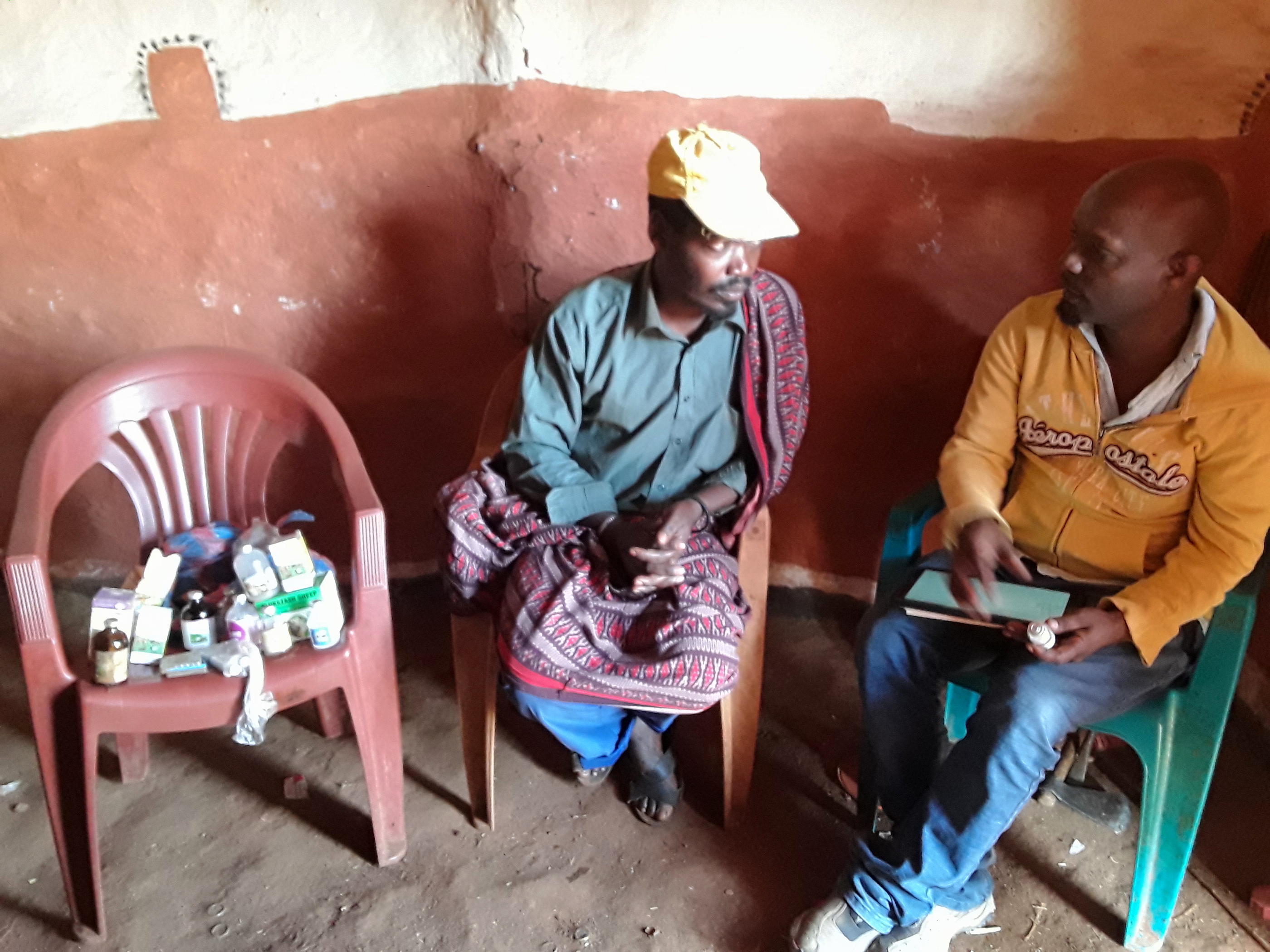Contact details:
Clare Chandler (clare.chandler@lshtm.ac.uk). London School of Hygiene and Tropical Medicine.
Barbara Wieland (b.wieland@cgiar.org). International Livestock Research Institute.
Background
The use of antibiotics in production animals is currently one of the main concerns of AMR experts, international organizations, governmental institutions and scientific community. It is known, that in many parts of the world, especially in LMICs, antibiotics are used as growth promoters for livestock and they form part of various animal feed formulas. Even though the link between this fact and the emergence of resistance is not yet well understood, it has been proposed that incorrect use of antibiotics in animals could be acting as a main driver of antimicrobial resistance. Despite this fact, not much information about how, why and what antibiotics are being used in animals is currently available. Moreover, it has been previously suggested that information about AMU at the granular level is vital to generate reliable volumetric data.
To date, many tools to collect information of use of antibiotics (ABU) in animals have been developed. However, these tools need to be improved and harmonised in order to be used in AMR surveillance systems. Especially challenging is to create a harmonised tool that can measure antibiotics use at a granular level, given the variety of factors that influence them and the difficulty of comparing ABU across animal and human health sectors.
Discussing tools used for assessing antimicrobial use
We conducted a workshop bringing together scientists working with different tools to gather information about ABU. The aim of the workshop was to discuss and analyse ways these tools can be improved or modified towards the development of a harmonised methodology that objectively measures ABU. The workshop brought together scientists working on antimicrobial use in Vietnam, Uganda, Cambodia, Ethiopia, Malawi, Tanzania and Thailand.
The workshop was organised by the CGIAR research program on Agriculture for Nutrition and Health (A4NH) and the CGIAR research program on Livestock and was held in Uganda over two days (22ndand 23rd October, 2018). Initially, researchers presented an overview of their research and shared their experiences testing the tools they have developed and discussed the potential limitations and advantages of their methodologies. Subsequently, some key topics emerged and were further discussed, resulting in a map showcasing the complexities of the use of antibiotics at the farm level and beyond.
Lessons learned
The workshop highlighted the fact that developing a completely harmonised tool to be used in different settings and across public health and livestock sectors will be a challenging process to overcome. From experiences shared, strengths and weaknesses of the tools evaluated were identified, and although they were useful in collecting data at a granular level for the studies they were used, they were context-specific. Most of them were able to collect valuable qualitative information of the specific site studied, however, none were able to generate reliable volumetric data, which is a fundamental characteristic of a tool to be used in a surveillance system. Similarly, it was also recognised that although working with a One Health perspective is crucial to develop a reliable tool it would be a difficult challenge to overcome as ABU varies between health sectors.
Consequently, participants emphasised the need to work under a framework that allows a critical appraisal of the usefulness of the information collected. And they discussed the convenience of developing a partly harmonised tool that has a core structure that could be used across different settings, to facilitate monitoring of trends overtime. But at the same time, tool need to allow some flexibility and adaptability to the context where data collection takes place.
Next steps
Potential next steps suggested during the workshop were1:
- Comparison of the existing data collection tools from the livestock and human sectors.
- Ascertaining whether the generation of specific volumetric data is necessary for ABU surveillance.
- Establishing which aspects of data collection could be harmonised across sectors.
- Understanding what resources would be needed to upscale site-specific research into a surveillance programme.
Research Impact
By developing a harmonised tool that comprehensively captures information about ABU across different health sectors and settings the study will contribute with the development of national and international surveillance and monitoring systems for ABU, allowing metanalyses to be performed and monitoring trends over time, and promoting the collection of data from a ‘One Health’ perspective.
Researchers and Participants
Clare Chandler1, Barbara Wieland3, Ulf Magnusson6, Amia Winfred3, Biruk Alemu3, Catherine Nichole Hunt8, Christine Nabirye1,4, David Kiryabwire, Denis Byarugaba9, Dickson Ndoboli9, Hang Tran Ming7, Esther Sophie Rottenburg1,4, Gunilla Stroem6, Laurie Michelle Denyer Willis1,4, Lawrence Mugisha9, Louis Omoya3, Mark Caudell5, Michel Dione3, Miriam Kayendeke1,4, Nichola Naylor1, Peter Oba3, Sheila Ayoo3, Susan Nayiga1,4,
Institutions involved
- London School of Hygiene and Tropical Medicine, UK.
- Antimicrobial Resistance Centre, UK.
- International Livestock Research Institute (ILRI).
- Antimicrobials in Society (AMIS), UK.
- Food and Agriculture Organization for the United Nations (FAO).
- Swedish University Agricultural Sciences (SLU), Sweden.
- Vietnam Academy of Social Science, Vietnam.
- University of Liverpool, UK.
- University of Makerere, Uganda.
Research Subject Area(s)
Human health, Public health, Animal health, Antibiotic Use (ABU), Antimicrobial Resistance (AMR)
Funding
- CGIAR research program on Agriculture for Nutrition and Health (A4NH)
- CGIAR research program on Livestock
More information
- Antimicrobial Resistance Centre and International Livestock Research Institute. Collecting data on antibiotic use in animals: Entebbe workshop proceedings. 22-23rd October 2018. Available online at https://amr.lshtm.ac.uk/wp-content/uploads/sites/12/2018/06/LSHTM-Collec...
